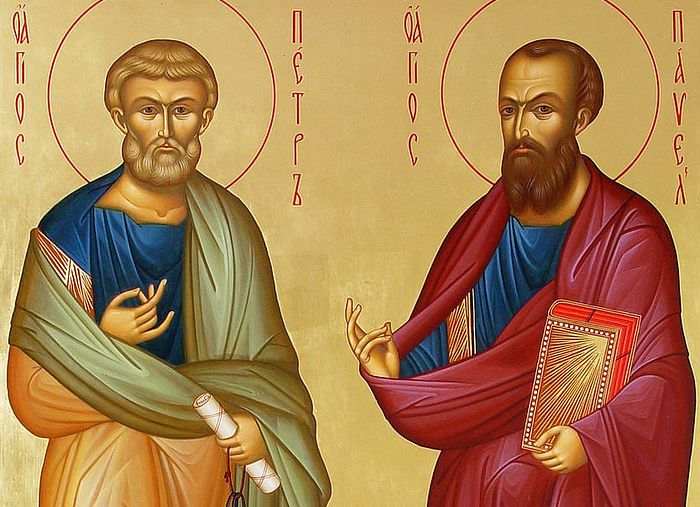St Peter and St Paul
As part of our mission statement we encourage pupils to ‘spiritually follow our saints’. At the beginning of every academic year all pupils learn about St Peter and St Paul and on 29th June we celebrate the feast day of these two great saints with a special Mass and picnic which parents and carers are invited to attend. Find out more about our saints below:
Peter and Paul were both friends of Jesus, but their lives were very different.
Peter, a fisherman in Galilee, was first named Simon but Jesus gave him the name ‘Peter’, which means ‘rock’. Jesus told Peter that he would build his Church on this rock. Jesus called Peter to leave his work as a fisherman and follow him. Peter became the leader of the twelve Apostles (the special friends of Jesus). When Jesus asked his friends who they thought he was, Peter said “You are the Messiah, the Son of the Living God.” At the Last Supper, Jesus foretold that Peter would deny him three times, before the cock crew. That night, when Jesus was arrested, Peter was so frightened that he denied knowing Jesus – three times – and then the cock crew, and Peter wept. After Jesus rose from the dead, he asked Peter three times “Do you love me?” When Peter replied, three times, that he did, Jesus told him “Feed my sheep”. Peter was an important leader of the early Church. After Pentecost he was able to preach to large crowds, telling them about Jesus. He became the first Bishop of Rome: the first Pope.
Paul, a very religious Jew from Tarsus, was first called Saul. He never met Jesus whilst Jesus was on earth. After Jesus had ascended to heaven, Saul was trying to stop the early Christians teaching about Jesus. Then on the road to Damascus, the Risen Jesus appeared to Saul, telling him to stop persecuting Christians and to believe in Jesus. Saul was converted. He became known as Paul and Jesus made him into an Apostle for the Gentiles (the people who were not Jews). Paul made three missionary journeys, founding churches in places in Asia Minor (modern Turkey) and Europe. Paul was a tentmaker and he did this work to support himself on his travels. After his third journey, Paul was arrested and put into prison for two years. He insisted on standing trial in Rome, but the ship he was taken on was shipwrecked off Malta. Finally, Paul reached Rome, where he spent two more years under house arrest.
Peter and Paul both died as martyrs in Rome, around 63 AD: Peter by crucifixion and Paul, as a Roman citizen, by beheading with a sword. You can read about them in the Bible: in the four Gospels and in the Acts of the Apostles. In the New Testament, you can also read letters (Epistles) that Paul wrote to people in the churches he had founded, in places such as Rome, Corinth, Galatia, Ephesus and Philippi.







